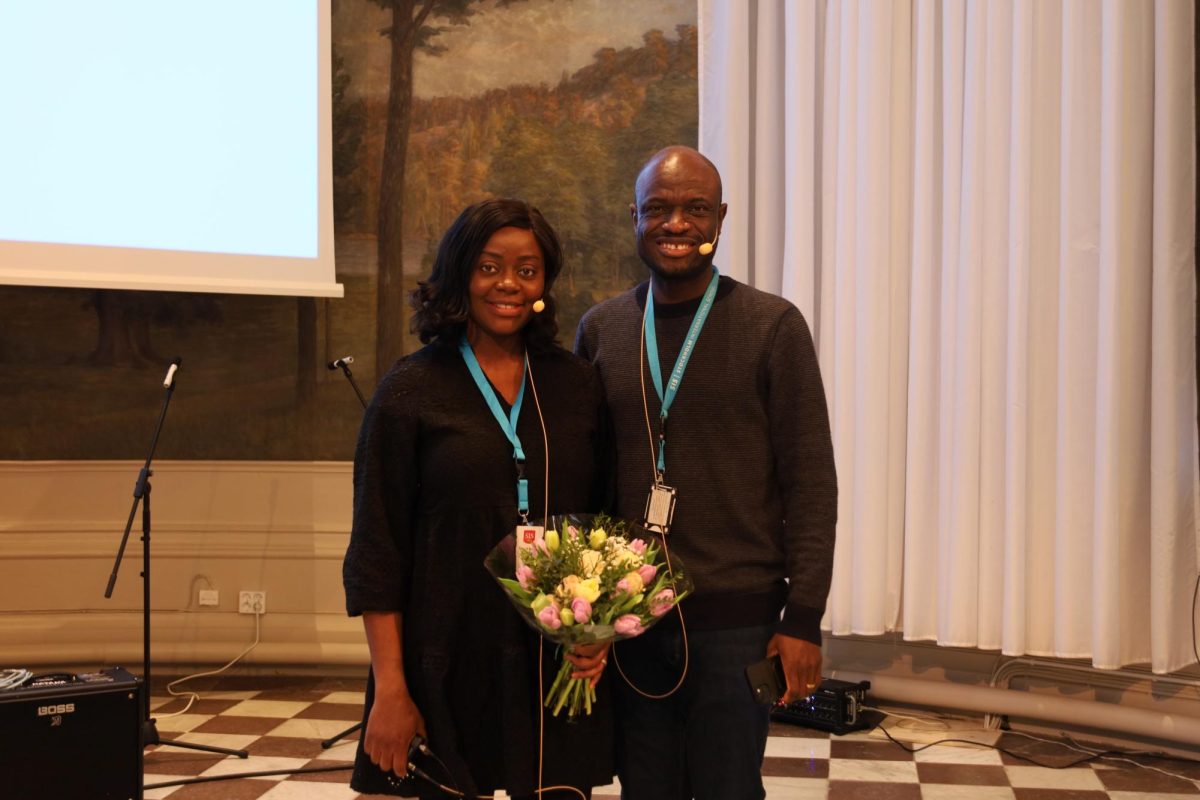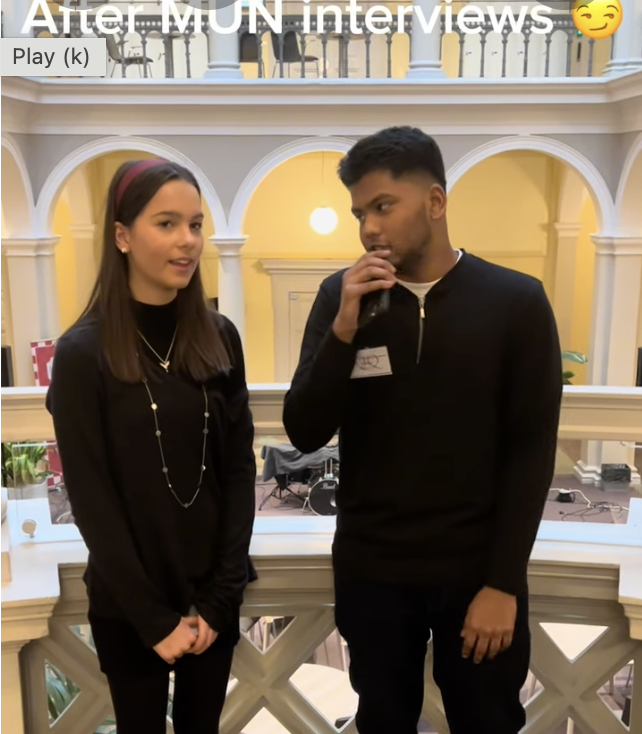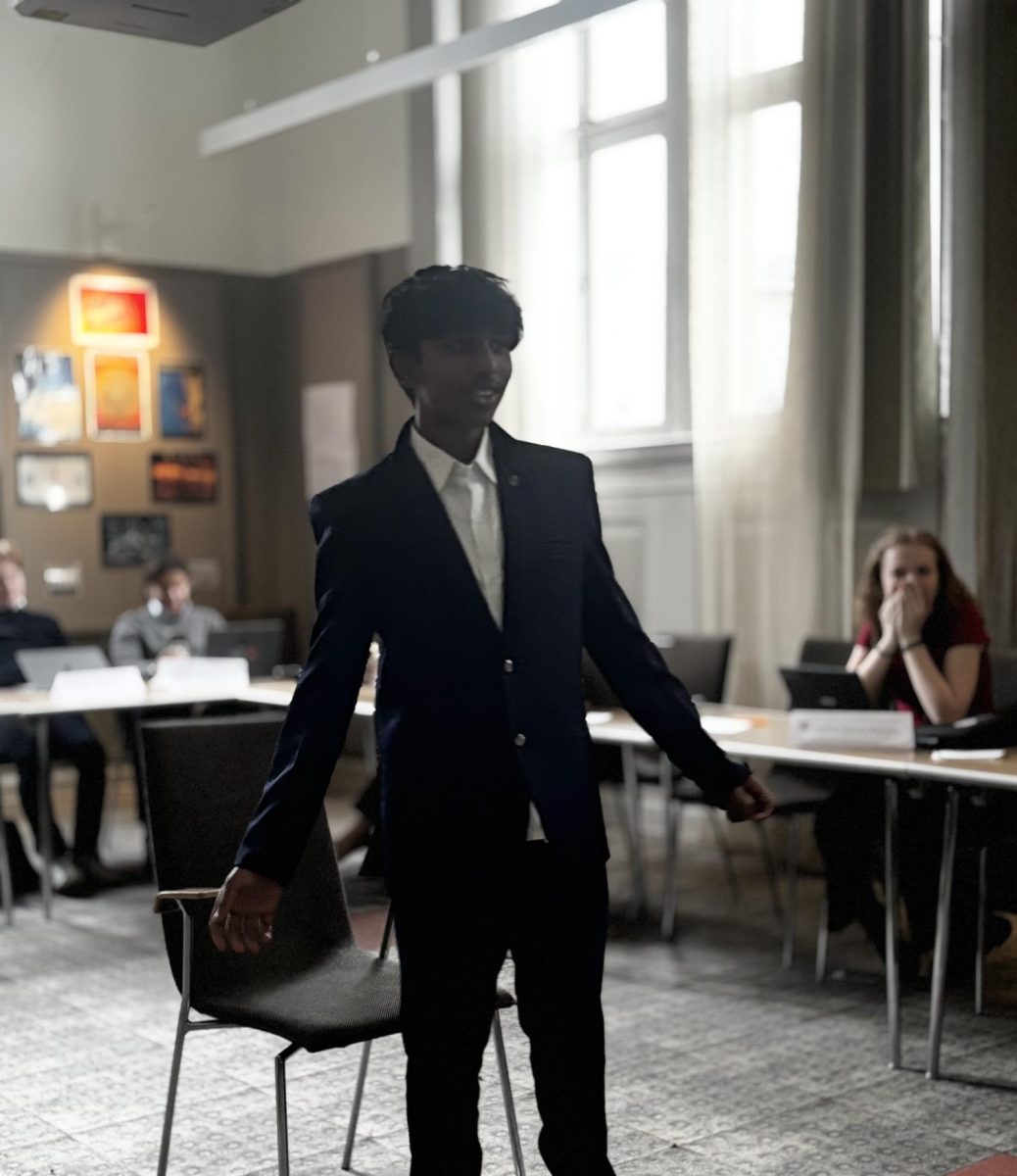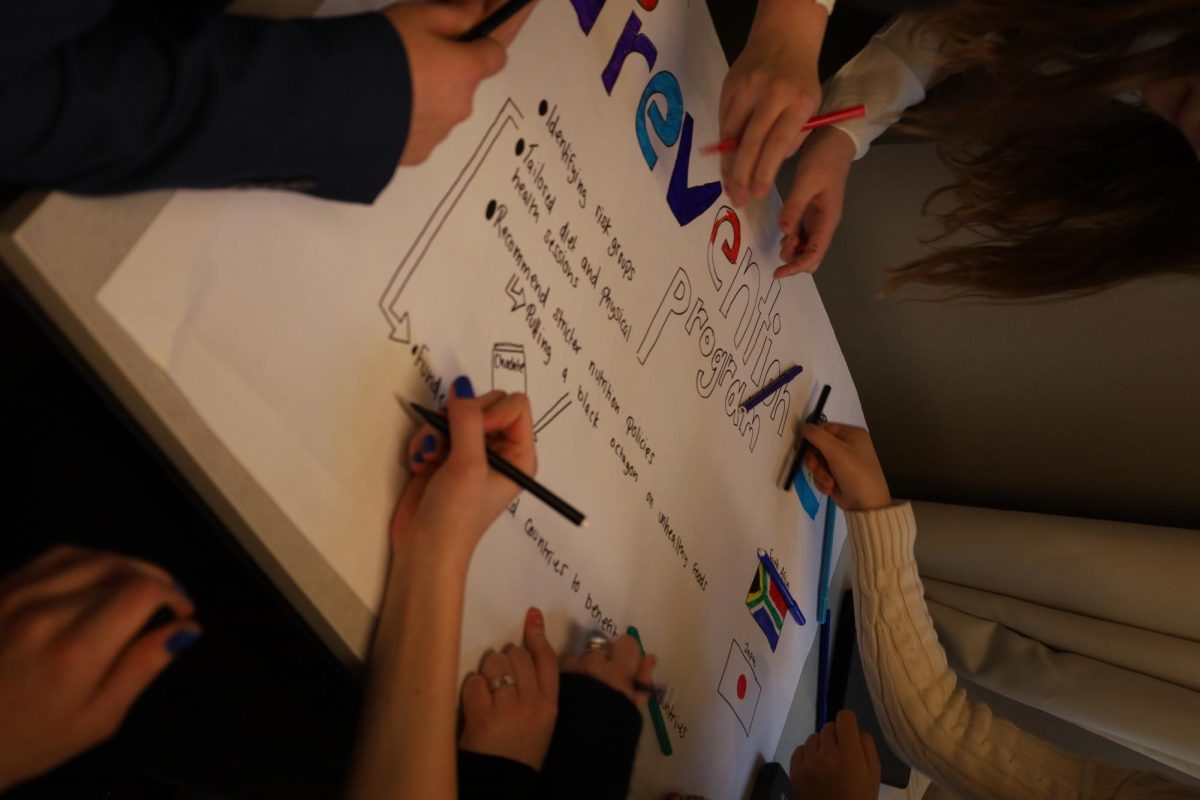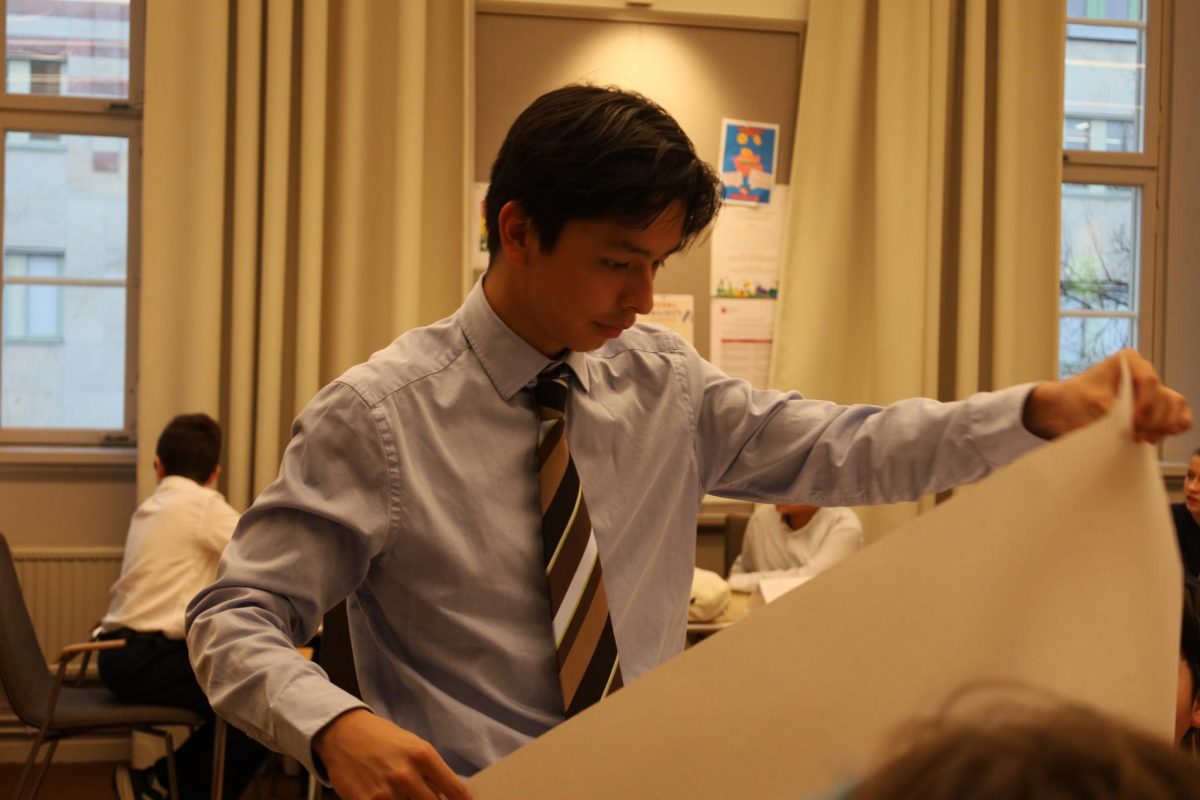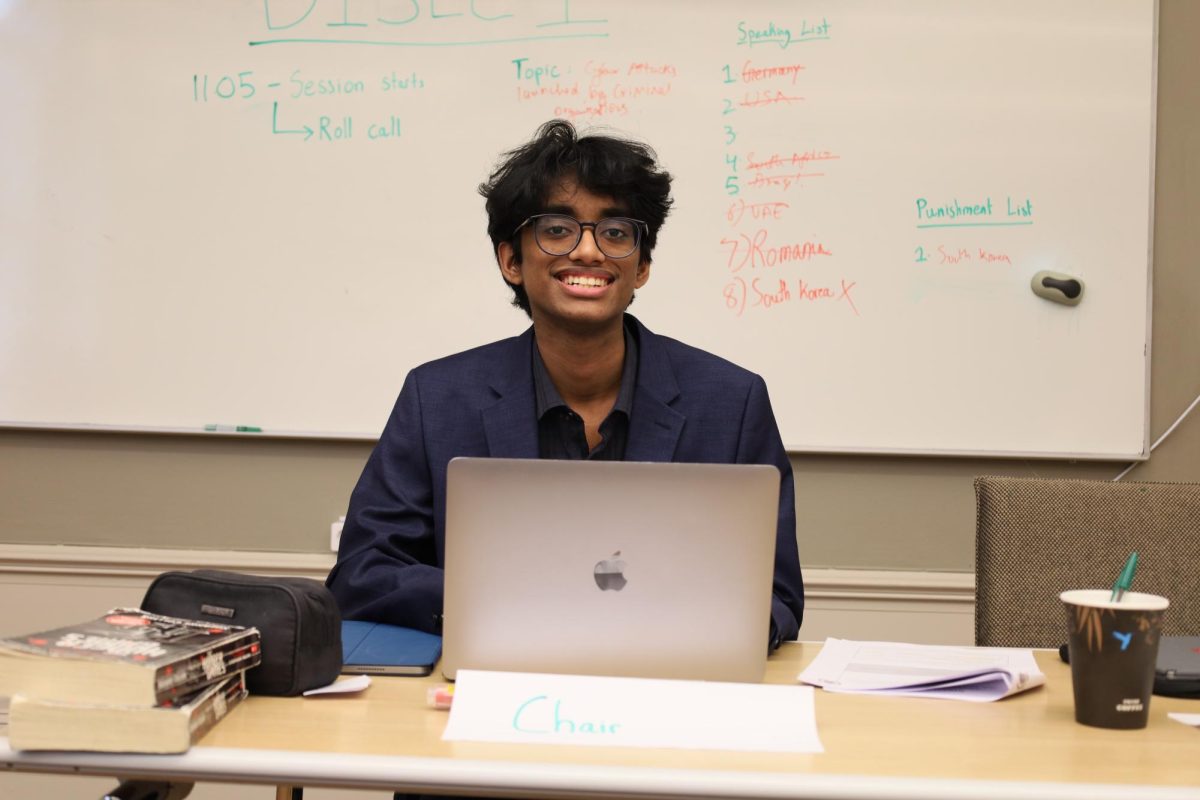Maude: First of all, what was the event on Saturday all about?
Ashwika:Okay, so basically on Saturday we invited different schools to join the Stockholm International Conference for 2025 and we had to schools like Futura (Futuraskolan International) and SSHL (Sigtunaskolan Humanistiska Läroverket and we together debated on different topics. The topics were the Nigerian Civil War and the Veto Powers reformation and the migrant workers rights – there were three separate committees for this. We debated and discussed these topics. As for the programme throughout the day, first we had an opening ceremony in the morning and we had the guest speakers arrive. For both the closing ceremony and the opening ceremony we had a workshop that the grade 11s held and we had some speeches from the grade 12 students about the topics and MUN in general all in all, we just warmed up the guests a little bit.
Maude: What was it like with the other schools? Were there any memorable interactions you had?
Ashwika:I think it was lovely to meet so many new people from new schools, especially the ones who are doing the IB. You get to learn so much from them in regard to the topics that you have just studied and as chairs. As well you get to learn so much about how different countries have such different perspectives on the same topic. How people handle conflicts, how people come up with resolutions, how they debate, how they convey and negotiate there’s just so much to learn from each other.
Maude: What did you think of the entire conference? If you were to go back in time, what would you change or keep the same?
Ashwika: I thought the conference was lovely. Overall, there was so much participation by the people however from our side. The organisation team could have made the entry of the guests a bit smoother. Maybe plan it a bit better, and have more time and organise it. We accidentally gave out the wrong folders to the SSHL students, so those small types of mistakes I would have fixed to make sure we were always on our toes, be prompt and quick with our actions. That’s what I would change. Keep the same – I’d say the people, the experience and the relationship that you form with the people that you meet.
Maude: So to look back in general, if you were to reflect on MUN day… in a sentence or two, can you please summarise your thoughts on all of MUN day?
Ashwika: So, I feel like it was really great, especially this year. Since I was a part of the organisation committee I looked at it (MUN Day) from a different perspective – from a different lens. Not from a delegate’s perspective, not from a chair’s perspective but more from the perspective of someone who’s trying to host this entire conference – bring together something nice for all these people. I’d say that overall it was so beautiful and amazing to see how we all come together and use MUN as a platform to discuss these issues, because at the end of the day, they’re so important. If our generation can build such nice resolutions at this age I can’t even imagine the way we could help, and build this world and help people when we’re older.
Maude: That is so true! Assuming you’ve seen all that the QQ posted, what did you think of the articles? Strengths, weaknesses?
Ashwika: Okay, so I’d say the article’s strengths were how the QQ members went up to specific chairs and asked for their opinions. I think just asking and having one-on-one conversations with them was really good. Weaknesses could be that some of the articles were quite similar and I think for next time, a variety of different types of articles would be very good as well.
Maude
An interview with Ryan X. about his reflection of MUN day with the other schools:
Keith: What was the event on Saturday all about?
Ryan: It was dependent on which committee you were in, and there were no set topics. In the committee that I was chairing, they were talking about ways to end the Nigerian civil war, and came up with using ceasefires and councils to implement policies.
Keith: What was it like with the other schools? Were there any memorable interactions?
Ryan: Most of the students who came from the other school were quite an experience. Despite it being their first conference I was very pleased, they did very well. Overall there was a positive contribution.
Keith: What would you change or keep the same?
Ryan: I would change the closing ceremony. There were four guest speakers speaking simultaneously in the same room. The way that it was setup was that none of the groups or committees could speak aloud, therefore there was a disruptive atmosphere as groups would have to speak louder than others. It was a good idea to set up the closing ceremony in the Aula, however they could have organized this event in a more practical way.
Keith: In a sentence can you summarize MUN day:
Ryan.: It was very successful and it was the first time we have hosted a MUN day since COVID. From what I have seen and the committee I have been chairing, MUN day has been very successful.
Keith.: Assuming you have seen the QQ’s posts, what were the articles strengths or weaknesses?
Ryan.: It was good and they were sent out really spontaneously, however the articles were very short but it was understandable since you guys had to formulate articles in the spur of the moment. It would have been great if the articles covered a bit more depth of the events that occurred.
Keith



